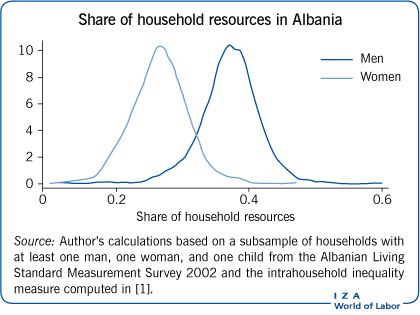Elevator pitch
Transition to a market economy is accompanied by a period of greater economic uncertainty. Women are likely to suffer substantial disadvantages from this uncertainty compared to men as they are, for example, more likely to lose their job. This not only implies a monetary loss for the entire family, but also degrades female bargaining power within the household, possibly further aggravating their well-being. When intra-household inequality—an unequal distribution of resources among family members—exists, female poverty might be significantly larger than what can be deduced using standard household based poverty measures.
Key findings
Pros
More-educated women have more bargaining power, implying a larger share of household resources.
Women with more bargaining power tend to spend more on girls’ education, thereby improving future female empowerment.
Before transition, women's labor and educational outcomes were high in former socialist countries, suggesting an egalitarian position between men and women within families.
Smaller gender pay gaps and broad female participation in the labor market can reduce intrahousehold inequality as well as female poverty.
Cons
During transition, women were more likely to lose their jobs, which worsened both families' economic situation and women's relative position within the family.
Budget constraints and the emergence of high unemployment rates induced major changes to family policy in transition countries, discouraging female labor market participation.
Intrahousehold inequality can be substantial and growing during transition; this means that female poverty may be much greater than official poverty figures based on household-level data.
